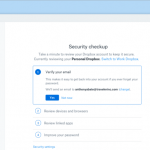If you’re in the U.S., this marketing data company has a psychology profile on you
Cambridge Analytica is transitioning from defense and political clients into the commercial market, with named profiles on every U.S. consumer.
Where you are, what you buy and your age. These are the kinds of attributes that digital marketers commonly employ for targeting.
London-based Cambridge Analytica is adding an additional layer: psychology. With US offices in New York City and Washington, DC, the company is now redirecting its psychological targeting from national security and political clients — including Donald Trump — to commercial ones.
Chief data officer Alex Tayler pointed out to me that most marketing employs demographics, geographics and psychographics. Demographics include age, gender and cultural group; geographics is your location and neighborhood; and psychographics — as used in commercial marketing — tracks people’s purchasing behavior. These categories are key to creating the audience segments that marketers commonly use for ad and other targeting.
His company adds personality data, based around five fundamental traits that govern how people view the world around them. Called the Ocean traits, they are Openness, Conscientiousness, Extraversion, Agreeableness and Neuroticism. The various intensities of the traits form the basis of 32 different personality styles.
While many marketers use behavioral, demographic, location and similar factors to guide their marketing, Cambridge Analytica — founded in 2013 — claims that it is the only one employing quantitative psychology research for programmatic profiling and targeting.
To gather personality profiles, Cambridge Analytica offers a voluntary online psychology survey of about 120 questions. Tayler told me that thousands of social media users take the test in order to find out about their personalities.
To do so, they need to log in using Facebook, which gives Cambridge Analytica opted-in access to actual user identities. Through the identities, the company can match the surveys to other data layers — licensed from sources like Acxiom and Experian — about a given user’s demographics, purchase behaviors and political engagement.
Each resulting profile, the company says, contains between one thousand and five thousand data points from the various layers. Cambridge Analytica has a real-name profile for “every adult consumer in the US,” Tayler said, as well as some profiles in other countries.
For ad targeting, the company’s profiles are anonymized and made available to data management platforms (DMPs), but real identities are used for direct mail and political campaigns.
The surveys result in several hundred thousand personality profiles, which create models that Cambridge Analytica’s machine learning uses to infer the personalities of everyone else. Users taking the survey tend to be younger users, and there are more women than men, but Tayler said there are enough older users and men among the hundreds of thousands of survey takers to create representative profiles.
Profiles that match non-personality attributes in the profiles of survey-takers are tagged as having similar personalities. For instance, someone who is 50 years old, makes $150,000 annually, lives in the Center City area of Philadelphia and matches other data points from a survey tester is assumed to have similar personality traits.
To test the accuracy of these inferences, a portion of the original psychology surveys are “held out” — that is, the Cambridge Analytica platform attempts to predict the psychological traits of those profiles, without referring to the surveys themselves. It then tests its predictions against the actual profiles with surveys and adjusts its models when it makes errors.
The company says it can predict whether a specific personality trait is high or low with an accuracy of 60 to 80 percent. But not all traits are equally predictable. Extraversion is hardest to predict, while Agreeableness is the easiest.
Does all this psychological profiling make a difference? Chief Revenue Officer Duke Perucci says that the psychology-based targeting models, which are refined by a team of behavioral scientists, let a marketer design the visuals and text of messages to appeal to psychological profiles, as well as your demographic, geographical and purchasing dimensions.
The company claims a click-through rate that is as much as three percent higher than otherwise for ads targeted in this way. It says its techniques result in a 10-percent increase for purchase target density — that is, targeting ads to users who are more likely to buy — as well as a seven-percent lift in conversions.
About two dozen brands are currently using its services, although the company declined to name any. Besides Trump, it has conducted political marketing for Ted Cruz and Ben Carson, as well as Republicans in Senate and congressional races in 2014.
Perucci told me his company is now pivoting toward commercial clients from its previous emphasis on political and defense projects. The latter, he said, has included virtually “every hotspot in the world, [where] chances are we’ve sent teams.” As an example, he said the company has worked on projects to assess how to prevent Muslim youth in various countries from becoming radicalized.
Marketing Land – Internet Marketing News, Strategies & Tips
(18)















